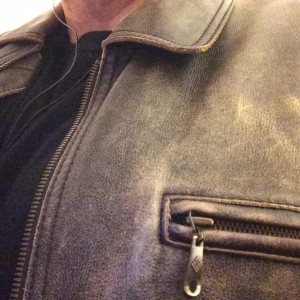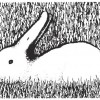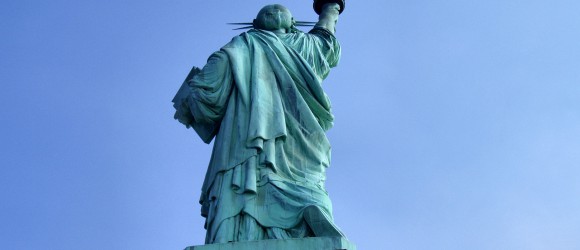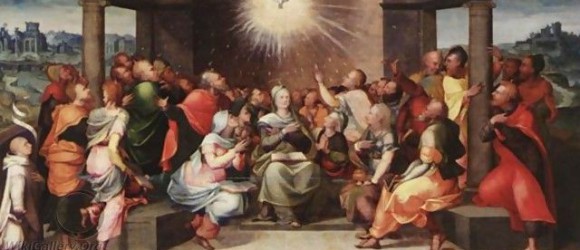Dust Jacket
- At November 04, 2015
- By Bob Howe
- In Blog Posts, Poetry
 0
0
old leather
jacket pockets inside and out
zippered, flapped, and
plain
larded with museum tags;
faded restaurant receipts
for meals enjoyed, and not;
a crushed penny from the zoo
hand-cranked, a tiger, if you look
closely;
a religious tract—
pocketed rather than pitched, to not offend the chestnut-haired girl who pressed it on you
—shares a silk-lined pocket
with a jiggle joint flyer
of another brunette whose affections
are purely transactional;
a ticket stub has worked itself
into the lining,
you don’t remember how the movie ended,
but the joke you shared over the popcorn;
looking for change
your fingers close
on a key card
from a hotel misadventure
so for a moment marvel
at your own capacity;
and oddly, a cat’s eye marble
rescued from the gutter,
chipped but still bright.
you wear your relationships close
against the chill of November
You Broke My Heart, Emma Lazarus
- At July 04, 2015
- By Bob Howe
- In Blog Posts, Poetry
 12
12
Who is the most patriotic
American?
Is it me, born into a cocoon
Of postwar Americanness
and nurtured on a diet of Wonder Bread
and red, white, and blue TV
(good guys wear olive drab),
or is it The Other
–seduced by the Scylla and Charybdis
of opportunity and equality–
to cross oceans and deserts, to
ford brown rivers and bluff
hard-faced men at iron gates.
I’m not sure I know
What It Means to Be Free,
raised up staring at
Liberty’s back;
having to read Emma’s verse
in the funhouse mirror.
The Gift of the Pentecost
- At May 24, 2015
- By Bob Howe
- In Blog Posts, Fiction
 0
0
Trust thyself: every heart vibrates to that iron string.
Ralph Waldo Emerson
I was reading Cynthia Ozick’s rapturous review of Harold Bloom’s latest book today (at least I think it was rapturous) and I realized that I have almost no interest in anything Bloom has to say.
The older I get, the less sure I am of anything: my summary judgments have been wrong often enough–whether from bias or incomplete information or both–that I am disinclined to proclaim any universal truths. Paradoxically, I have also become more and more of a literary Protestant: I believe less and less that we need critics and professors of English to translate books for us. I believe in the primacy of the scripture, as it were, and a priesthood of all readers.
There are things to be learned from experts, to be sure, chief among them the historical facts and contexts, and the literal meanings of archaic expressions and language, but what I increasingly resist–mulishly and possibly irrationally–is anyone else’s interpretation of a piece of literature, great or small, or in fact anyone else’s definition of what is great or small literature.
What books are great, and what great books mean, comes down to a matter of taste. Past a certain point (possibly fifth grade and certainly puberty), one should begin to know that taste and truth are not the same thing. There are certainly many books in the Western Canon that I would agree are great, but if the existence of the Canon is the result of some pseudo-Darwinian winnowing of literature, let’s not ignore the highly contingent nature of book publishing, the perfidious tastes of editors and critics, and the effect of politics, national and literary, in shaping the gene pool.
The stakes here are not about whether one is “right” or “wrong” about Shakespeare or Milton or David Foster Wallace: they are much higher than that. The stakes are whether one remains open to possibility or not, whether one finds something new and resonant in those authors, rather than the conventional wisdom. The stakes are whether one finds revelation in literature, or just secondhand liturgy, dull and lint-flecked from riding in the coat pockets of salarymen priests.
 Once you’re told the correct interpretation of a book, it is very hard to back out of that understanding and come to your own. The problem is akin to looking at those images with hidden figures in them: once you’ve seen the recumbent duck, you can’t un-see him.
Once you’re told the correct interpretation of a book, it is very hard to back out of that understanding and come to your own. The problem is akin to looking at those images with hidden figures in them: once you’ve seen the recumbent duck, you can’t un-see him.
Very often religious teachings are a metaphor for some deeper understanding of the world. I’d like to think that Acts is an echo of the quickening of language in humans: once the Holy Spirit descended upon us, our speech became mutually intelligible. Authors can speak to us directly, without priestly intermediaries, if only we trust ourselves to understand them.
Moon House
- At May 07, 2015
- By Bob Howe
- In Blog Posts, Poetry
 0
0
 I’d forgotten the sky
I’d forgotten the sky
existed,
until I saw the moon today;
two hundred and thirty eight thousand miles above
my earthbound fears.
I’ve driven cars that far,
if not any one car,
on city streets and highways, and once,
disastrously, on a logging road,
cut though an Oregon forest
like a coroner’s incision;
perfectly straight, perfectly functional, and perfectly ugly.
Only booted feet and gloved hands have
touched the moon, and
at that, it has driven men
quietly insane.
Reveille! Reveille! All hands heave out and trice up. Now reveille!
- At April 15, 2015
- By Bob Howe
- In Blog Posts, Poetry
 0
0


